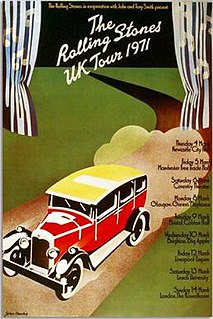 W
WANZUK was a tripartite force formed by Australia, New Zealand and the United Kingdom to defend the Asian Pacific region after the United Kingdom withdrew forces from the east of Suez in the early 1970s. The ANZUK force was formed in Singapore on 1 November 1971 under Rear Admiral David Wells and disbanded in 1974.
 W
WDecimal Day in the United Kingdom and in Ireland was the day on which each country decimalised its respective £sd currency of pounds, shillings, and pence.
 W
WThe Four Power Agreement on Berlin, also known as the Berlin Agreement or the Quadripartite Agreement on Berlin, was agreed on 3 September 1971 by the four wartime Allied powers, represented by their ambassadors. The four foreign ministers, Alec Douglas-Home of the United Kingdom, Andrei Gromyko of the Soviet Union, Maurice Schumann of France, and William P. Rogers of the United States signed the agreement and put it into force at a ceremony in Berlin on 3 June 1972. The agreement was not a treaty and required no formal ratification.
 W
WHubbard v Vosper, [1972] 2 Q.B. 84, is a leading English copyright law case on the defence of fair dealing. The Church of Scientology sued a former member, Cyril Vosper, for copyright infringement due to the publication of a book, The Mind Benders, criticizing Scientology. The Church of Scientology alleged that the books contained material copied from books and documents written by L. Ron Hubbard, as well as containing confidential information pertaining to Scientology courses. Vosper successfully defended the claim under the fair dealing doctrine, with the Court of Appeal deciding unanimously in his favour. The judgment given by Lord Denning clarified the scope and content of the fair dealing defence.
 W
W"Jack in the Box", written by David Myers and composed by John Worsley, was the United Kingdom's entry at the Eurovision Song Contest 1971, performed by the Northern Irish singer Clodagh Rodgers.
 W
WLed Zeppelin's Spring 1971 United Kingdom & Ireland Tour was a concert tour of the United Kingdom & Ireland by the English rock band. The tour commenced on 5 March and concluded on 1 April 1971.
 W
WWinter 1971 United Kingdom Tour was a concert tour of the United Kingdom by Led Zeppelin. The tour ran from 11 November to 15 December 1971, and "confirmed their supremacy in the UK rock marketplace". Taking place immediately after the release of the band's fourth album, Led Zeppelin IV, all tickets sold out despite going on sale less than a week before the commencement of the tour. Second shows at Wembley and at Manchester were added after fans queued for up to eighteen hours in order to secure a ticket.
 W
WThe 1971 United Kingdom postal workers strike was a strike in the United Kingdom staged by postal workers between January and March 1971.
 W
WThe Prospero satellite, also known as the X-3, was launched by the United Kingdom in 1971. It was designed to undertake a series of experiments to study the effects of space environment on communications satellites and remained operational until 1973, after which it was contacted annually for over 25 years. Although Prospero was the first British satellite to have been launched successfully by a British rocket, the first British satellite placed in orbit was Ariel 1, launched in April 1962 on a U.S. rocket.
 W
WThe Rolling Stones' 1971 UK Tour was a brief concert tour of England and Scotland that took place over three weeks in March 1971.
 W
WThe Roskill Commission was a UK Government Commission charged with looking into finding a site for a new airport for London. Chaired by High Court judge Eustace Roskill, it sat from 1968 to 1970 and published its report in January 1971.
 W
WSchoolkids Oz was No. 28 of Oz magazine. The issue was, on a special occasion, edited by 5th- and 6th-form children. It was the subject of a high-profile obscenity case in the United Kingdom from June 1971 to 5 August 1971, the longest trial under the 1959 Obscene Publications Act.